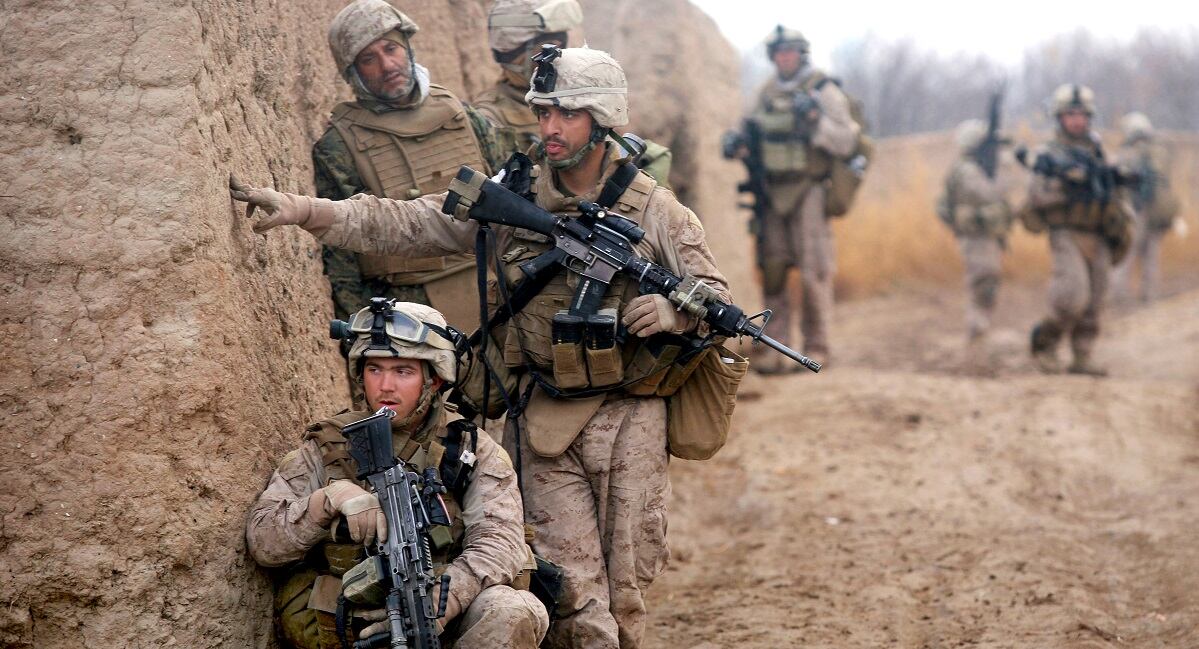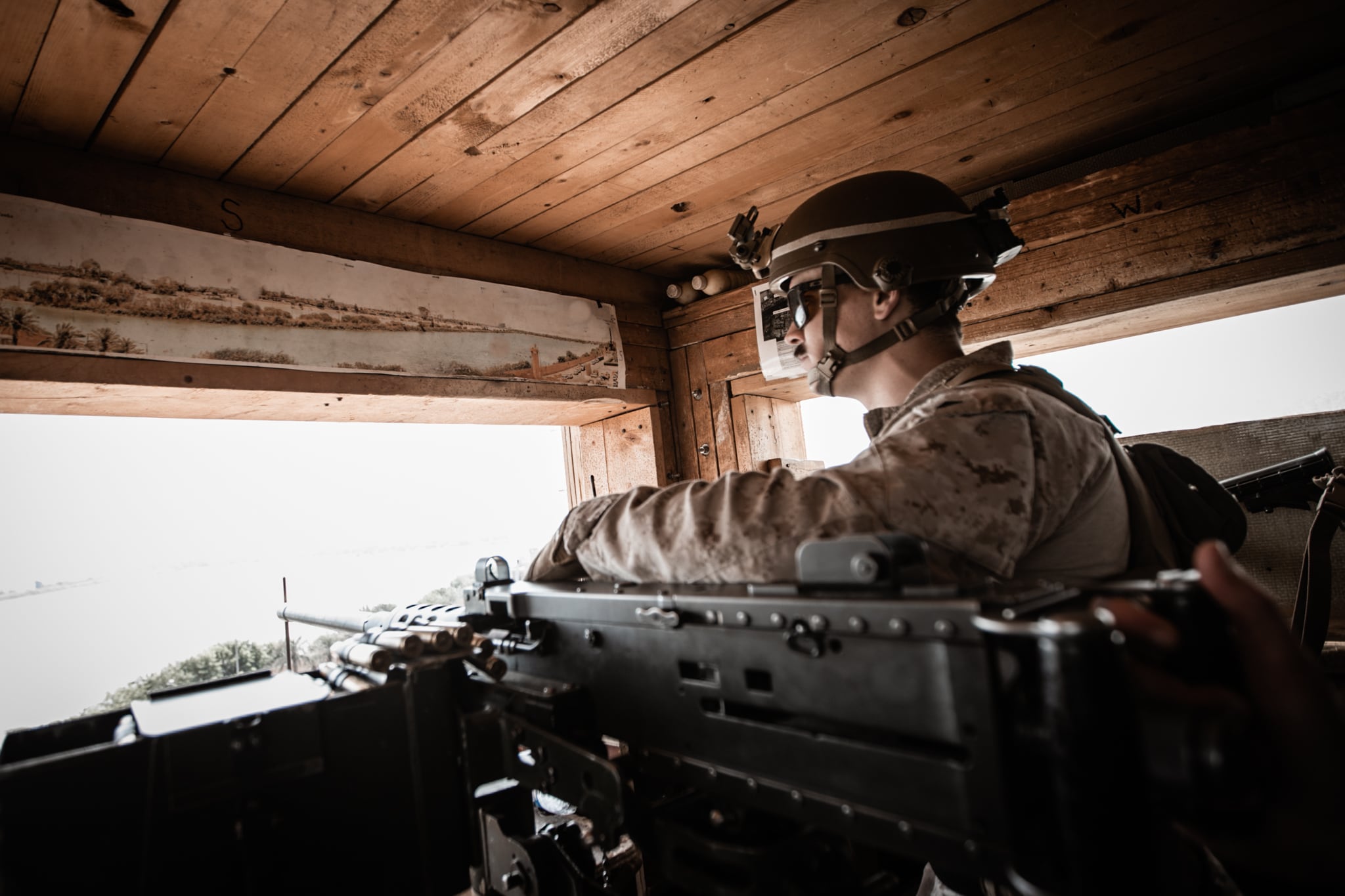The Marine Corps is undergoing a radical redesign that has drawn ire from some — but for the sergeant major of the Marine Corps, reinvention of doctrine to face a new threat is one of the things the Corps does best.
“In our history we teach Marines that the Marine Corps doesn’t change in many ways … we train, we fight, we win, every Marine is a rifleman — it is part of our soul,” Sergeant Major of the Marine Corps Troy Black told Marine Corps Times on April 1 in an interview at the Pentagon. “How we do that, there’s got to be forward thinking, and that’s not a new concept.”
On March 24, Black published a memo outlining how the Marine Corps changed during the 20th century from trench fighters to island-hoppers to America’s force in readiness, ready to respond to any crisis around the globe.
RELATED

For the top enlisted Marine, the new Force Design concepts are simply another evolution for the Corps.
‘Change is necessary’
The modern plan laid out by Marine Corps Commandant Gen. David Berger is aimed to better prepare the Marine Corps for a fight against China.
Berger argues that the Corps cannot fight a near-peer adversary with the tactics, weapons and logistics systems it has spent 20 years during the Global War on Terror developing and refining.
Instead, small forces will need to avoid getting wiped out by large missiles. Those small forces will have to be better trained and better equipped, capable of launching their own large missiles or electronic warfare attacks.
Almost all aspects of the Marine Corps — from weapons systems, formations and even how the Marine Corps will recruit and retain the best Marines — will go through some form of change.
Since the outset, the change has drawn criticism from the retired community, but criticism has grown in recent weeks, with multiple opinion pieces being published from notable Marines like retired Lt. Gen. Paul Van Riper, the former head of Marine Corps Combat Development Command, who retired in 1997.
The cultural pushback should not be a surprise, coming from a service that cherishes and teaches its history better than any other branch in the U.S. military, Black said.
He noted that when former Commandant Gen. Al Gray redesigned the Marine Corps based on maneuver warfare concepts, he too drew criticism.
That was until those concepts were used to completely route the Iraqi military during Operation Desert Storm in 1990, Black said.
The sergeant major acknowledged that combat is the only way to truly test a new design, but added that the Marine Corps is at even greater risk of being too conservative as it prepares to faceoff against China.
“Marines are figuring out that change is necessary,” Black said.
Part of the plan relies on the Corps getting more mature and improving retention. As part of those efforts, Black has taken the lead in changing the human performance outlook and resources in the Marine Corps in the hopes of improving all Marines’ mental, physical and spiritual well-being.
But that may be difficult as the Corps gets smaller and reorganizes without giving up most of itsncommitments.
“There are no fewer MEUs than there ever have been,” Black said.
With the closing down of the three special purpose Marine Air-Ground Task Forces, the Corps has been relieved of a significant manpower burden and is moving closer to a 1-to-3 deploy-to-dwell cycle, he said.
He added that improved retention would allow units to train more efficiently as the bulk of veterans will no longer be replaced by junior Marines every four years.
“If we overtax the force … that is going to have the effect” of reducing retention, he said.
RELATED

The sergeant major did note that there was a risk that a small Marine Corps eventually will mean a higher operational tempo, which could damage the Corps’ ability to retain troops. But he does not believe that is currently in the cards.
The Corps also is undergoing a small cultural rethink of what it means to be in the infantry.
No longer will the entire focus of the Corps be on providing the infantry everything it needs to win a fight. In some future situations infantry will be a supporting unit acting to help enable the movement of naval vessels. With the changing focus, some have speculated the entire ethos of the Corps will move to a defensive posture and the concept that ‘every Marine is a rifleman’ soon will die.
Black understands why someone without insider knowledge could see it that way, but vehemently disagrees.
“The mission of the Marine Corps rifle squad is taught to every single enlisted and officer,” Black said. “It is to locate close with and destroy the enemy by fire and maneuver and to repel the enemy assault by and close combat.”
“That’s not going to change,” he added.





